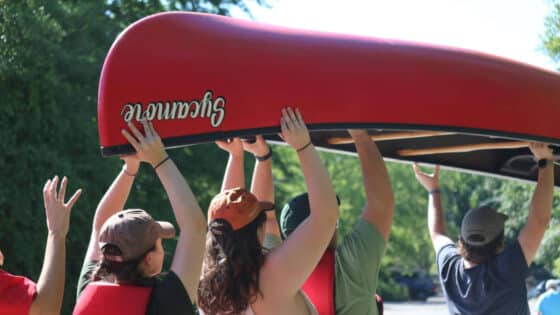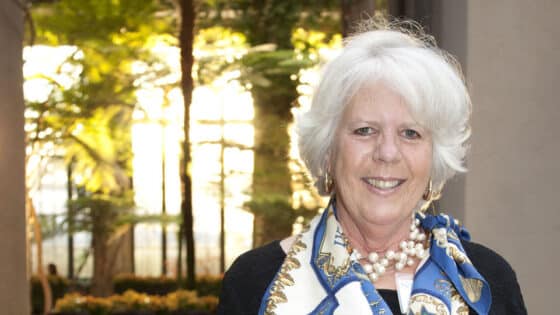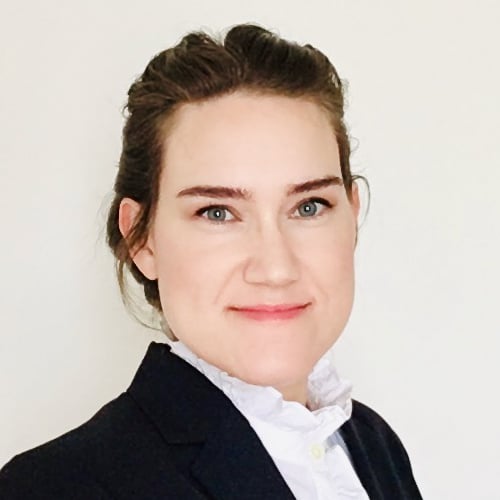
This year, Stroud Water Research Center welcomed two new people to the watershed restoration team: Amanda Garzio-Hadzick and Heather Titanich. Together, they will help the Stroud Center scale up community outreach in support of cleaner, healthier waterways.
Amanda Garzio-Hadzick, the Shepherd Leading Water Protectors

As a child, Amanda Garzio-Hadzick learned the value of environmental sustainability by exploring the outdoors, camping, fishing, and growing food against the backdrop of northeastern Pennsylvania’s coal industry. The abandoned coal mines and stripping pits caused major environmental impacts such as acid mine drainage and vast deforestation, but she found beauty and joy in the untouched mountains and forests.
She inherited her work ethic from her parents, who built small businesses and were active members of their community. This foundation led her to become the first in her family to graduate college.
Garzio-Hadzick graduated summa cum laude with her bachelor’s in environmental science and policy from the University of Maryland, where she also placed third in the National Collegiate Soil Judging Contest. She earned her master’s in natural resources and the environment from the University of Michigan, where she studied soil ecology. She later held positions at federal and state departments of agriculture and natural resources, as well as in academia, where she focused on monitoring and preserving water quality.
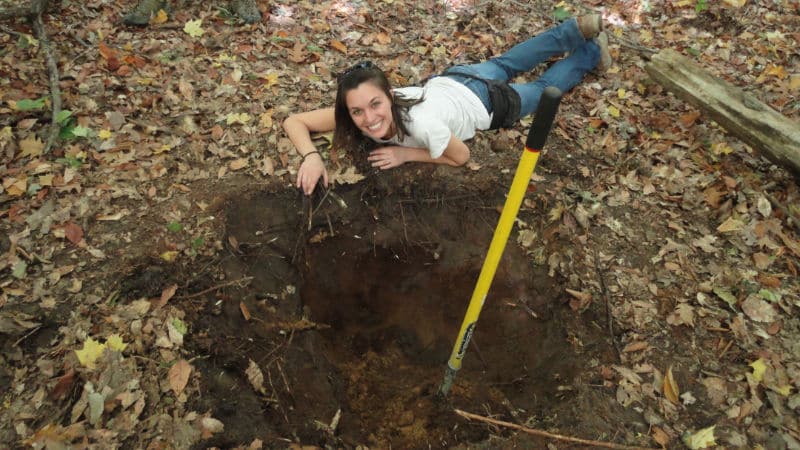
With a passion for sustainable food systems and the environment, Garzio-Hadzick is excited to be the Stroud Center’s new watershed restoration specialist. She proudly admits, “I’ve had a major crush on the Stroud Center for the past eight years, so I’ve just accomplished one of my career goals by joining the team!”
In her new role, she is helping farmers access climate-smart incentives for reducing water pollution and increasing carbon storage on their land.
Reflecting on the unique impact of the Stroud Center’s approach to restoring waterways, she says, “Having the research program so closely connected with the restoration and education programs makes a huge difference in changing the way we think about, and therefore make decisions about, our water. I love that we work across entire watersheds and across state boundaries.”
Recognizing nature’s fragility, Garzio-Hadzick says she and her husband are teaching their daughters to care for, protect, and appreciate natural resources, especially water, just as her parents taught her.

Amanda and her husband have visited all 50 states; however, northeastern Pennsylvania, where she grew up — with its rocky hills, hemlocks, white pines, mountain laurels, and white birches — is still her favorite landscape. “There is no place that brings me more peace and happiness.”
She currently lives outside Philadelphia with her husband and children.
Heather Titanich, the Arborist From Audubon
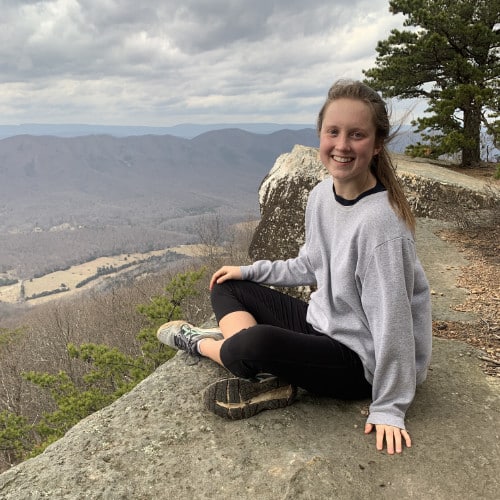
Whether by fate or inspiration, the arborist who found her way to Stroud Water Research Center hails from a town called Audubon — the Philly suburb named after the famed naturalist.
As the new watershed restoration coordinator, Heather Titanich is helping farmers and landowners care for their land and adopt stream-friendly practices, such as the planting of streamside forests.
Titanich says, “The beauty of planting trees is that, when done correctly, your work will hopefully outlive you. It’s been inspiring to visit some of the older sites where the Stroud Center has led tree planting projects and see the impact on stream health.”
An ISA Certified Arborist and a community builder, Titanich brings valuable knowledge and experience to the Stroud Center.
She studied environmental resource management and urban forestry at Virginia Tech. While there, she says, “I fell in love with forestry. I often think back fondly on my labs hiking through the woods, talking about tree identification, wetland delineation, and soil science.”
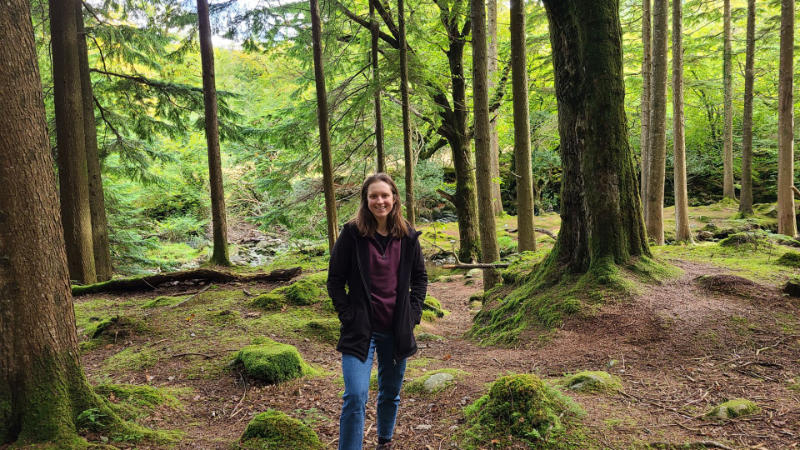
She later worked in public horticulture at various gardens around Philadelphia, educating the public about naturalistic gardening and native plants.
Most recently, Titanich worked as a community forester in Wilmington, Delaware, connecting people with the benefits of urban tree canopy.
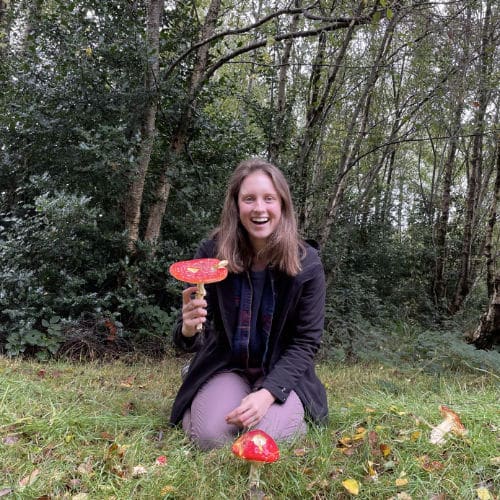
“I was inspired to work at the Stroud Center because of the experience and expertise in researching, planting, and educating people about the value of trees along our waterways. I’ve always recognized the Stroud Center as a leader in the industry and feel very grateful to be contributing to the impactful work here,” she says.
In her free time, Titanich enjoys hiking, camping, and foraging for fungi. She says, “I’m typically the friend who gets texts of plants and mushrooms asking, ‘What is this? And can I eat it?’”
On rainy days, Titanich prefers watercolor painting and playing the violin. She lives in West Chester with her partner and their dog and cat.

